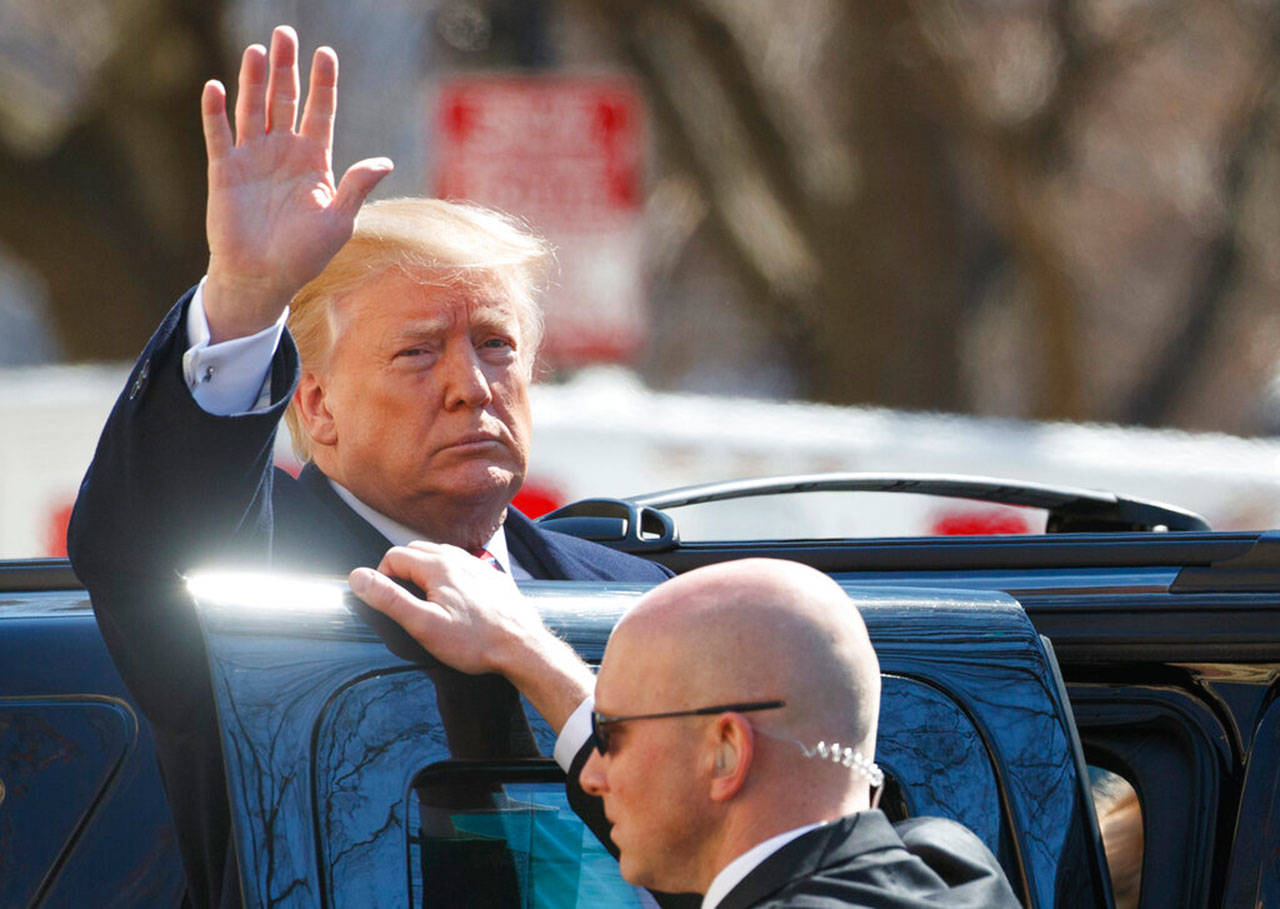By The Herald Editorial Board
It’s ridiculous that nearly four years after declaring his candidacy and more than two years after winning the White House, President Trump still refuses to release his tax returns.
More ridiculous is his excuse that he’s prevented by law from releasing his tax documents because the Internal Revenue Service is in the process of auditing them. No such law or policy exists, yet he continues to hide behind that pretense.
If Trump wanted to release his tax returns — as has every other major candidate for the presidency since Richard Nixon — he could have done so.
Legislation that has passed the state Senate and is now in the House tries to cure that breach of tradition by requiring such releases of all candidates for president and vice president.
The state legislation seeks the right outcome but is being made in the wrong venue.
Senate Bill 5078 would compel Trump — or any other candidate for president or vice president — to produce the past five years’ worth of tax returns; failure to do so would result in the state leaving that candidate’s name off the ballot for primary and general elections.
The legislation seeks to resolve a nagging question that should have been settled when Trump first announced his candidacy. And Trump’s reluctance to release his tax documents is, with certainty, the best argument for why they should be made public.
“Congress must know whether the president and executive branch are acting solely in the national interest — or are influenced by personal interest,” Steven Rosenthal, a senior fellow at the Tax Policy Center, told Congress in February.
Release of the tax returns — beyond clarifying what Trump and other candidates make each year — would show their sources of income, domestic and foreign; and how the tax code was used to reduce their tax bills.
Rosenthal, in his testimony to Congress, was arguing for federal legislation that would require release of tax returns. But he made that request of Congress, suggesting it require up to six years of returns and both personal and business returns. A similar requirement is included in H.R. 1, which has passed the House but has been blocked in the Senate by Majority Leader Mitch McConnell, R-Kentucky.
Regardless, Democrats, thanks to their newly won control of the House, now have the ability to require Trump to turn over his tax records. Three committees are empowered under the U.S. tax code to request those records. The chairmen of those committees have yet to do so, but are reportedly waiting until after special counsel Robert Mueller completes his investigation.
All of that is best handled in that other Washington. If a requirement is going to be made of candidates for national office, then Congress needs to write that law, not individual states. A requirement to produce tax records, when made by state lawmakers, raises questions of constitutionality and fairness toward state voters.
The legal record on such requirement is mixed. The U.S. Supreme Court has ruled that individual states can’t add to the Constitution’s qualifications for those running for the U.S. Senate and House. Yet at the same time, the Constitution also gives states the authority to set their own rules for presidential elections.
In a letter to the Senate, state Attorney General Bob Ferguson and Solicitor General Noah Purcell told lawmakers they believe the legislation is “likely constitutional.” But, anticipating that others won’t draw the same conclusion, both said that if the bill becomes law it “would definitely be challenged in court.”
Such court challenges could lead to uncertainty for all involved in elections. As proposed, candidates would have 63 days prior to the election to release their tax documents. Were that requirement challenged at the deadline, that legal uncertainty could make it difficult for the state’s Secretary of State office and county election offices to prepare and print ballots in time.
The proposed state law — because of the primary personality for which it is intended — will also be viewed by many as an injection of party politics into a process that must be protected as nonpartisan if it is to remain a trusted part of our democracy.
The intent is to either compel candidates to comply with a tradition of transparency or penalize those who refuse to follow it. But while aiming for Trump, the state legislation would instead penalize voters in this state by denying them a choice that is open to voters in other states.
Talk to us
> Give us your news tips.
> Send us a letter to the editor.
> More Herald contact information.

























